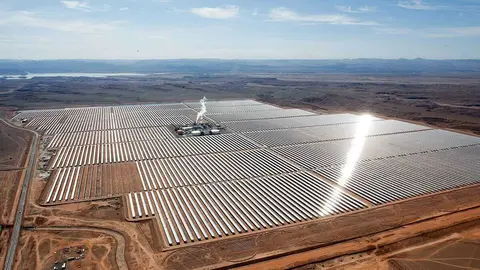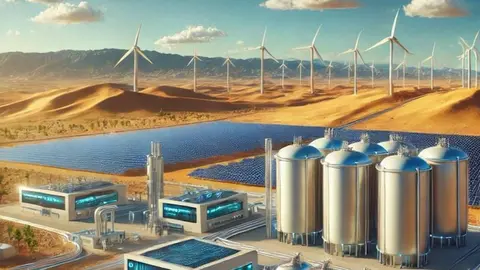Spain and Morocco: strategic allies in the face of global competition

Morocco, with its ambitious industrial and energy plan, is not an adversary, but a strategic partner for Spain. Its automotive industry is steadily moving towards one million vehicles a year, with a view to doubling production in a few years.
At the same time, its commitment to green hydrogen and renewable energy has incentives that attract giants such as Acciona and Moeve. These are not signs of rivalry, but of opportunity.
The Moroccan Minister of Energy Transition, Leila Benali, has made it clear: Morocco welcomes any cooperation or alliance that benefits everyone in the green energy trade. And therein lies the key. Spain and Morocco, far from competing in a zero-sum game, can forge a unity of action in strategic areas such as energy, logistics and industrial development. It is not a question of handing out crumbs, but of sitting down at the table with a vision for the future.
Initiatives for a solid alliance
To build a joint strategy that strengthens the competitiveness of both countries, action must be taken on several fronts. Here are some key points:
1. Joint education and training
Talent is the real currency of exchange in the global economy. A vocational and industrial training programme between Spain and Morocco could respond to the needs of strategic sectors such as the automotive, energy and logistics industries. Universities, training centres and companies should promote double degree programmes, exchanges and dual training adapted to the needs of industry in both countries.
2. Reciprocal investment in key sectors
Capital knows no borders, but it does recognise opportunities. Spanish companies can find in Morocco an ideal partner to diversify their production and access African markets, while Morocco can benefit from Spanish experience and know-how in renewable energy, infrastructure and digitalisation. Joint investment funds, tax incentives and investment protection agreements can facilitate this two-way flow of capital.
3. A Euro-African logistics hub
Spain and Morocco share a privileged geostrategic position, but until now they have acted more as competitors than as partners. Ports such as Algeciras and Tangier Med should be seen as complementary, not as rivals, in the construction of an efficient logistics corridor between Europe and Africa. Customs coordination, digitalisation of processes and reduction of bureaucratic obstacles would allow this logistics alliance to be consolidated.
4. Energy and green hydrogen: a shared commitment
If Europe wants to lead the energy transition, it needs green energy in large volumes, and Morocco has the potential to generate it. Spain, for its part, can become the distribution platform for the rest of the continent. Joint planning of energy infrastructures, with efficient interconnections and long-term supply agreements, would guarantee stability and competitiveness for both parties.
5. Business forums and a joint strategy
Good intentions are not enough. Spaces for dialogue and decision-making are needed. The creation of a permanent Spanish-Moroccan business forum, with representation from the main strategic sectors, would make it possible to define common objectives and eliminate barriers to trade and investment. In addition, a joint strategy at the institutional level would help to harmonise regulations and facilitate business cooperation.
Beyond the borders
Spain and Morocco are not just neighbours, they are also gateways between Europe and Africa. In a world where competition is global, fragmentation is a luxury we cannot afford. Pragmatism must prevail over geopolitical myopia. Betting on a solid and well-structured alliance between the two countries would not only strengthen our economies, but would also consolidate our position in an increasingly demanding international market.
Because, in the end, history is not written by those who are stuck in the past, but by those who know how to adapt and look to the future.



